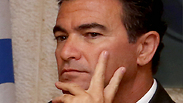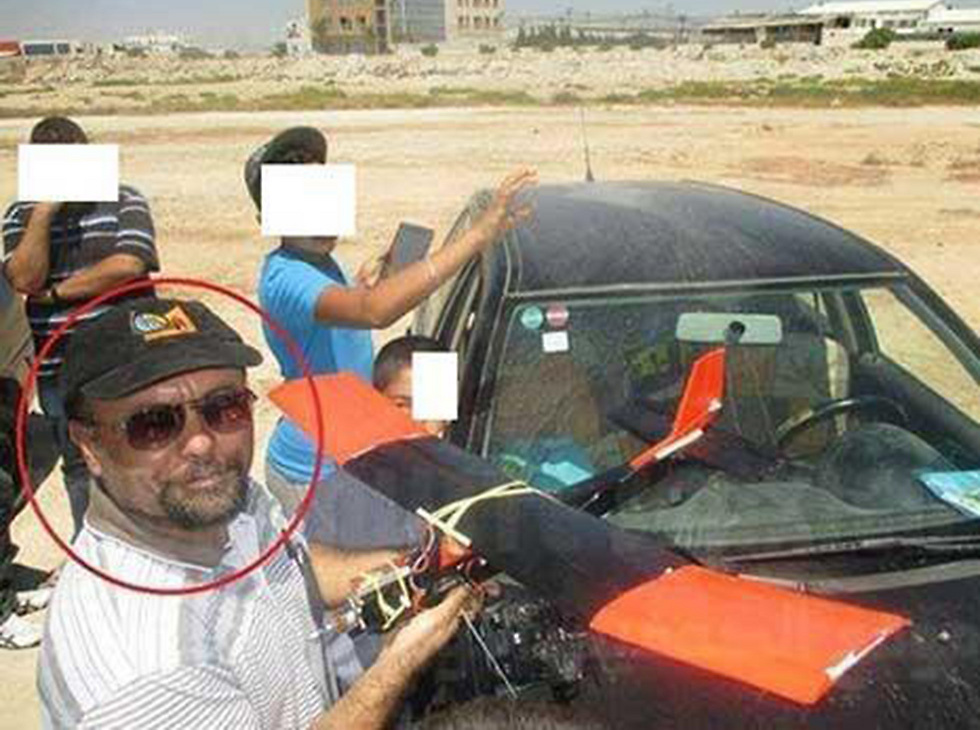
Mossad chief Yossi Cohen
צילום: AFP
Tunisia assassination: Yossi Cohen’s baptism of fire
Analysis: If the Mossad is indeed behind the assassination of Hamas aviation engineer Mohammad al-Zawahri in Tunisia, this is the first assassination attributed to the Israeli intelligence organization under Cohen’s leadership.
“All-out-battle is the name of the game. Our job is to subtract strategic abilities from our enemies, abilities which may harm the future and wellbeing of Israel’s citizens. When we have to, we must target the enemies themselves, but only when the use of assassination is only part of an overall strategy which includes means and tools as well.”
These words, according to a person who just recently retired from the Mossad, were used by the organization’s director, Yossi Cohen, to present his doctrine in a conversation he held after taking office in early 2016.
If the Mossad is indeed behind the assassination of Hamas aviation engineer Mohammad al-Zawahri in Tunisia, as reported by the foreign press, this is the first assassination attributed to the Israeli intelligence organization under Cohen’s leadership (or perhaps the second: Omar Zayed of the Popular Front for the Liberation of Palestine died under mysterious circumstances in Bulgaria).
The al-Zawahri hit is only the tip of an intelligence effort that likely involved dozens of intelligence and operations specialists from the Mossad, the Shin Bet (the Israel Security Agency) and the Military Intelligence Directorate. They identified him years ago as a player in the efforts to develop advanced arms for Hamas and Hezbollah, as soon as he left Tunisia for Damascus. He was in close contact with Hassan Lakkis, the head of Hezbollah’s R&D weapons unit (who was assassinated, according to foreign media, by the Mossad under Tamir Pardo’s leadership in 2013). Al-Zawahri “carried” his ties to Hamas when he returned to Tunisia and was a key player in the drone unit that the organization has been trying to establish—with the hopes that it will also include suicide aircraft, like the “Ababil” which was supplied to Hezbollah by Iran.
In the small and crowded Gaza Strip, which is under Israel’s watchful eye, establishing such a unit is impossible, but in Tunisia the organization found both the required flight areas and the man with the technical knowhow. His ties to Hamas in Gaza and Damascus and to Hezbollah put him in the crosshairs of Israeli intelligence officials, who gradually saw him as an increasingly dangerous element and decided to target him.
Tunisia is what the Mossad calls a “soft target” state. In other words, not an actual enemy state—or a “target country,” in the organization’s lingo—like Syria or Iran. It is not, however, a Western state considered a “base country.” The failure of an operation in a “base country” could cause a Mossad operative to lose his freedom. A mishap and capture in a target country could lead to his death.
If the Mossad was indeed behind the assassination, Cohen and his people surely presented Prime Minister Benjamin Netanyahu, who has experienced many disappointments, with a plan that satisfied him – both regarding the performance and, as importantly, the assassins’ escape. The people arrested in Tunisia were likely not involved and will be released soon.
Meir Dagan brought into the Mossad an extensive operational spirit, which assassinations are probably part of—but not the only thing. He ascribed great importance, for example, to combining efforts with the United States to prevent Iran from importing critical parts for its nuclear project. “An average vehicle has 25,000 parts. It’s enough to make sure that the company manufacturing it cannot get hold of some of them—not all, just a few parts—and the car will not drive,” Dagan would say. “On the other hand,” he would smile, “sometimes the most effective thing is to kill the driver and that’s it.”
An operation in such a distant arena like Tunisia, against a person who most probably knew that he was under some sort of threat, and in a world filled with cameras and biometric systems, is very dangerous and must only be carried out against a principled target—a target whose removal will clearly cause the rival considerable damage.
There is a symbolic value as well: The Mossad engages in a lot of operations, and contrary to its image—it’s not an organization that focuses on killing people. Nonetheless, there is nothing like such assassination operations to intensify its intimidating image.
Sometimes, the message concealed in the assassination is as important as making the target—in this case, an engineer helping a terror organization—non-functional: Israel’s enemies, wherever you are, we will find and kill you. Throughout the years, these actions created the myth around the Mossad’s name and long arm, as an aggressive and merciless organization. That’s not bad for an intelligence organization which sees the goal of deterrence before its eyes just as much as it sees the goal of prevention.











